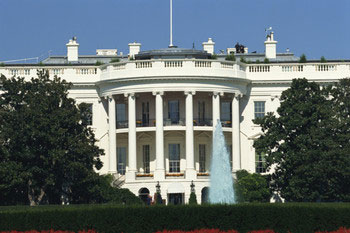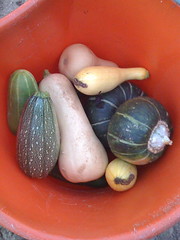 Richard Harris reports on NPR, 21 Oct 2009, about
Prairie Pioneer Seeks To Reinvent The Way We Farm.
Wes Jackson wants to solve
the 10,000 year old problem of agriculture:
Richard Harris reports on NPR, 21 Oct 2009, about
Prairie Pioneer Seeks To Reinvent The Way We Farm.
Wes Jackson wants to solve
the 10,000 year old problem of agriculture:
The problem, Jackson explains, is that agriculture in most places is based on practices that use up limited resources. The major grains, like wheat and corn, are planted afresh each year. When the fields are later plowed, they lose soil. The soil that remains in these fields loses nitrogen and carbon.The solution will have to be somewhat different for each region, Continue readingThis worries Jackson because vast quantities of soil are washed out of the fields and down the rivers, and the soil that’s left is gradually losing its nutrients.
Trying to figure out how to solve this problem, Jackson realized the answer was right in front of him. It was the patch of native prairie on his own farm — full of grasses from ankle to shoulder height, peppered with white and purple flowers, and surrounded by shrubs and cottonwood trees.
“Here is a steep, sloping bank with a lot of species diversity, featuring perennials,” Jackson says. “This is what I call nature’s wisdom.”
Perennials are plants that put down strong roots 10 feet or more into the ground and hold the soil in place. Perennials live year-round, unlike annual crops that get planted every year. In Kansas, perennials survive the harsh winters and the blazing hot summers.




